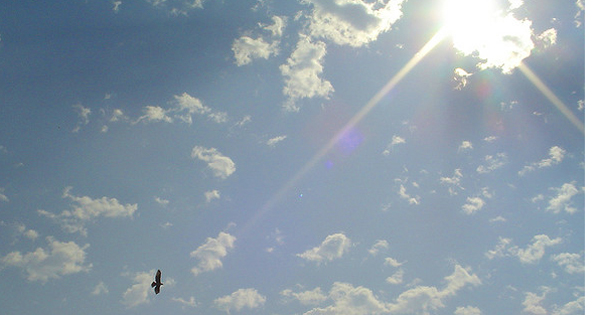
While shuffling past a park this afternoon, I heard the unmistakable sound of a softball being hit with authority verging on ferocity, and in an instant I was 16 and it was Saturday and it wasn’t even noon yet and my friends were at the curb in a loud Chevrolet Impala waiting impatiently for me to grab my stuff, saying, Let’s go man—we have a doubleheader against those guys with the two huge firefighters and they beat us good last time, let’s go, let’s go, let’s go! And we go.
The field was at the south edge of town where the landfill hill draws serious hawks to the feast of rodentia, and we outfielders had codes for when we saw big hawks or little hawks. One time our center fielder actually called time when he saw a falcon and he motioned his corner outfielders to him and we pretended to be working out a shift for one of the huge firemen. Our shortstop trotted out to see what was up, but we sent him back to the infield without telling him about the falcon, because he just would not have understood. Infielders are a different species of person, and they are small and fidgety and quick to anger and they have high metabolisms, which is why they are always eating seeds and chittering in their high-pitched manic infielder voices that no one else can understand. Often our shortstop would turn and chitter something at us in the outfield and we would nod and each take a step in and then back out again to make him happy. Our center fielder was of the opinion that if an infielder went for two whole minutes without chittering some nonsensical thing, he would explode right there by second base and the umpire would call a balk on principle.
It was always roaring hot, even when it was cloudy or misty or windy, and the other team always had some huge guy who looked like he was 40 and had been in prison, and the other team always had some idiot who had metal spikes and thought he was pretty cool flashing around the bases and sliding in with his spikes high, and there was almost always some minor kerfuffle about a ball that was clearly foul, and occasionally a batter did get hit accidentally on purpose even though this was relatively slow-pitch softball, and twice that I remember a pitcher lost his temper and started whipping pitches in as hard as he could until both teams started laughing and razzing the guy, and there was always a remarkable amount of dust even on days when it had rained all night and the field was a swamp, and we never could remember what inning it was or if we were winning or losing, and it is this last part that fascinated me this afternoon, as I stopped and watched the languorous softball game in the park.
Something about summer softball could not care less about what we usually care about, or say we do, when it comes to the religion of sport; the essence of summer softball is timelessness, scorelessness, starlessness, even in late summer, with the days cooling and the season sliding to an end. In summer softball an error is amusing and a hit is startling; the game is about the tall swaying trees in the outfield, and the slight declivity in the right-hand batter’s box but not the left, and the time we saw a buck deer in right field, and the beer you can open only after you take your sneakers and socks off and rub your feet in the tall grass under the visitor’s bench and snicker at the shortstop’s incomprehensible explanation of the double-steal he and the second baseman pulled off in the top of the fifth, not that anyone else on our team noticed; and the falcon whizzing low over the west end of the landfill hill like a tiny gray-blue fighter jet; and the home run the grizzled firefighter launched at one point, hit with such authority and ferocity that none of us outfielders even turned to watch the ball soar far over our center fielder’s head; but after that game, I remember, all of us outfielders made a point of going over to the other team’s bench and shaking that guy’s hand, a little bit because he hit the most mammoth homer we ever saw, and much more because the guy was a firefighter, which is a fine brave thing to be.

